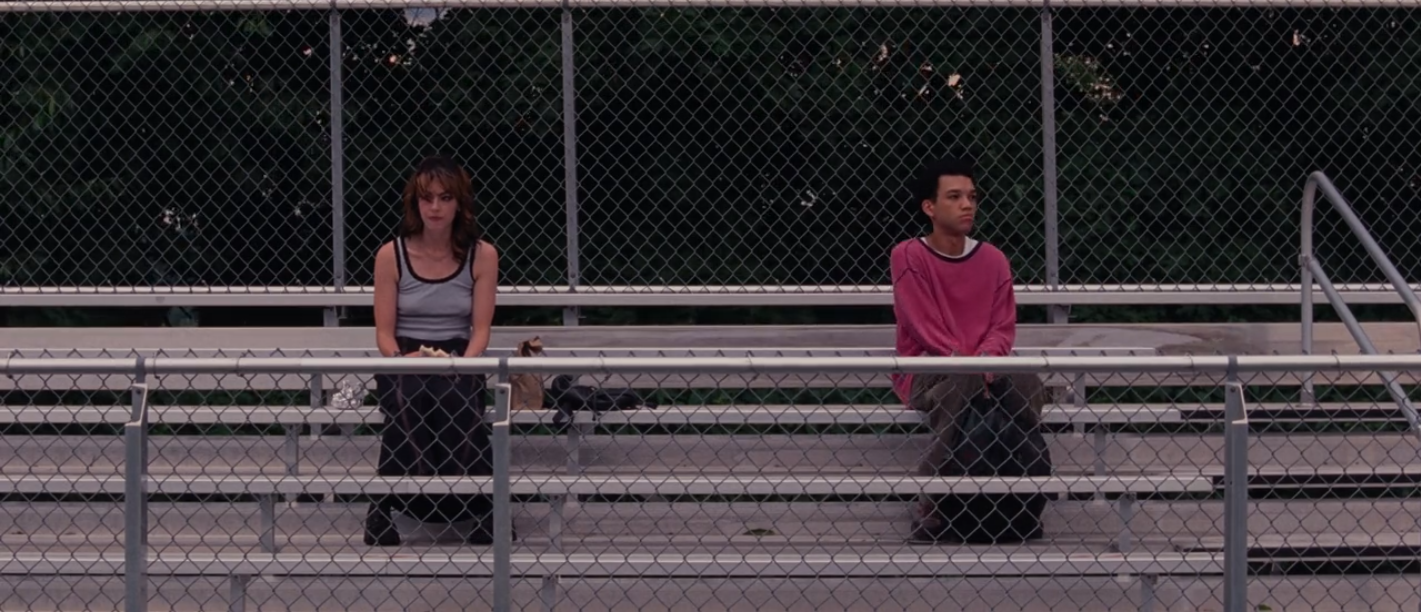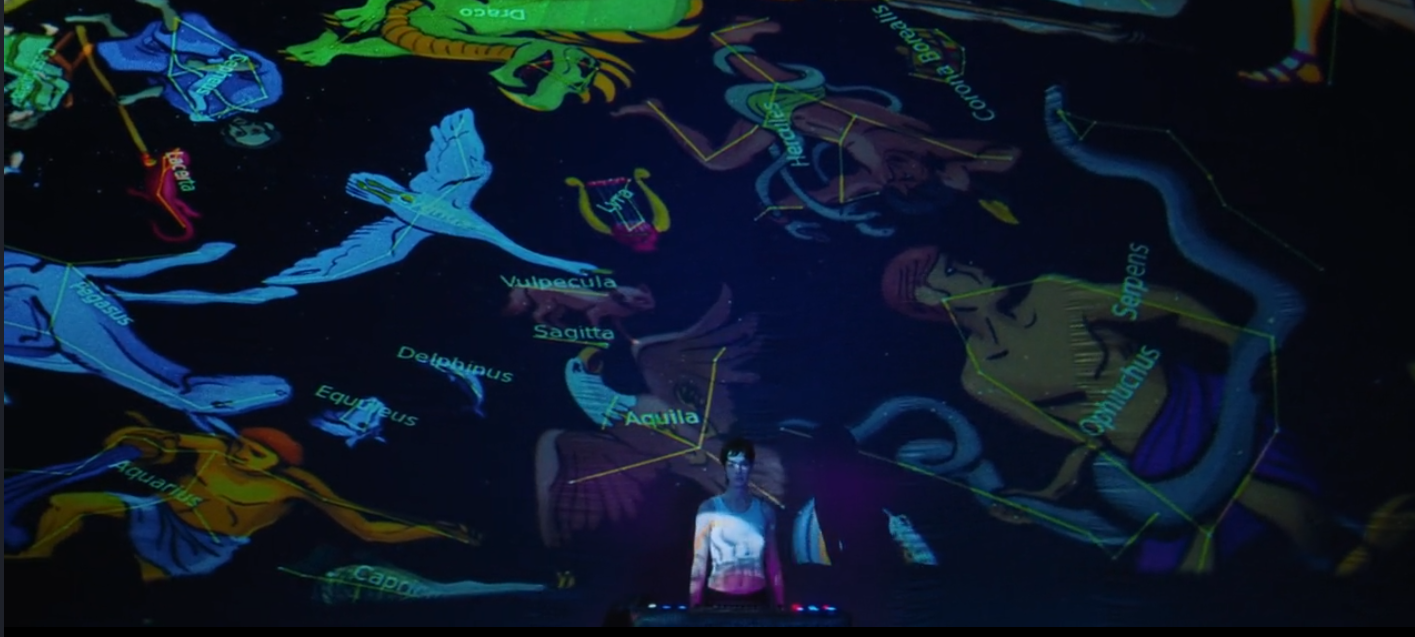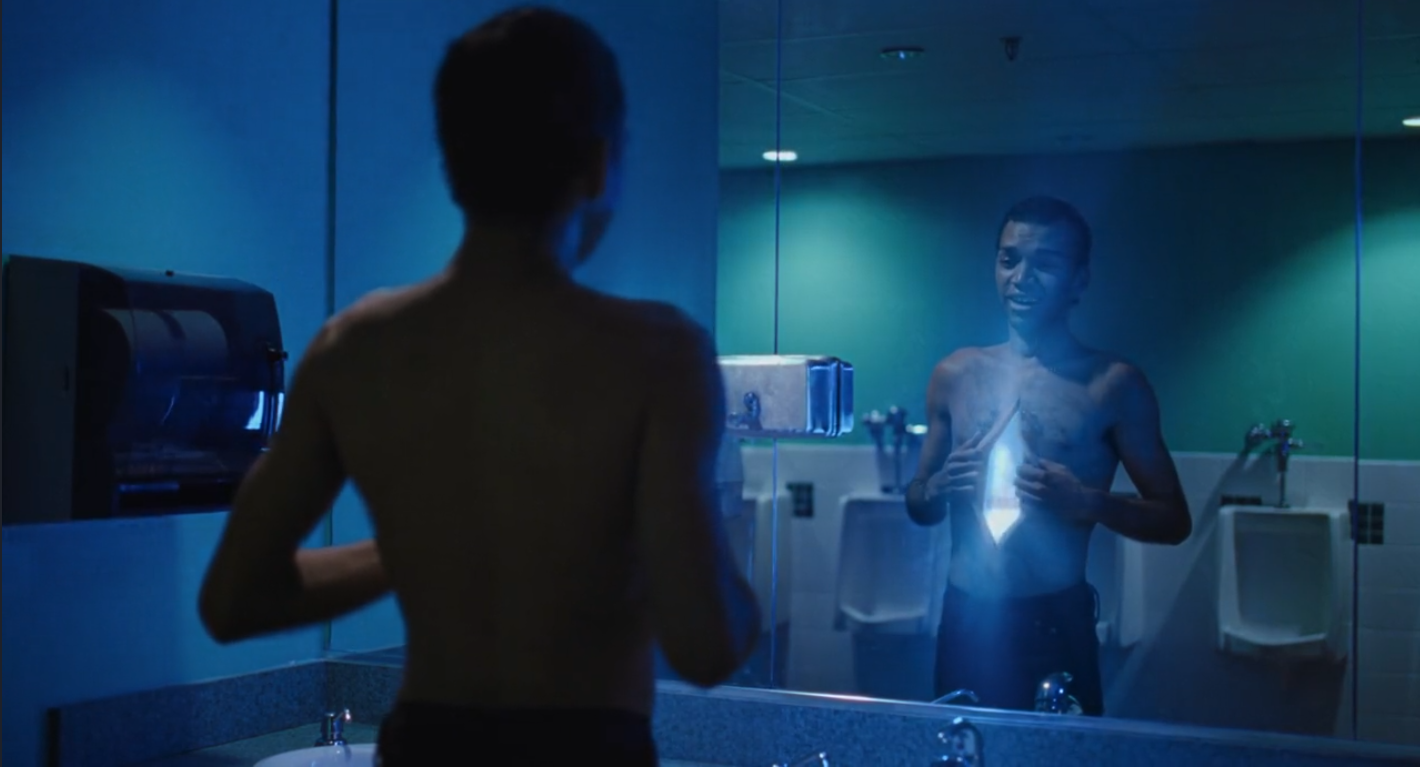Movie Review: I Saw the TV Glow
I Saw the TV Glow is a movie with heavy queer themes, commonly interpreted as being about coming out (and not doing so). I felt it said a lot about masking and escapism.
The film is marketed as horror, but lacks the jump scares or thriller plots common to the genre, instead having a low-level creepy vibe (in the style of the Backrooms or other liminal spaces) which I appreciated. I can’t see the film as a horror movie, though – allowing “failing to live up to your potential” or “having the possibility of a better life you lack the confidence to reach for” opens a lot of other movies to the genre. Ferris Bueller’s Day Off is a horror movie (for Cameron).
For most of the movie, it’s left ambiguous as to whether anything supernatural is occurring. I liked this, together with the small hints that something’s odd (a children’s TV series being on very late at night, pages of a guide to an unreleased episode appearing with the torn-down power lines). I think the film did low-level creepy (e.g. the abandoned grocery store) very well.

In the first act, lasting 42 minutes, Owen is introduced (with some scenes which will appear in later circumstances), meets Maddy, sneaks out to her house every night to watch The Pink Opaque, and refuses to run away with her after his mother dies. Some films, like Fight Club, thread a careful needle of interest and mystery, keeping the viewer entertained and curious. This was approximately the opposite of that. Very little of interest happens (although I had to look up some references, like “vote for the saxophone man”), and I felt this could have been half as long, opening up some space for more creepy scenes.

Act 2 lasts another 40 minutes and is my favourite part of the film, possibly because it reminds me heavily of The Northern Caves, another work about fans getting far, far too into a work of fiction while supernatural events ambiguously happen.
It opens with a spooky abandoned play place scene, continues to an indication Owen might be autistic (with repeated explicit requests for eye contact), then hits the power line foreshadowing, followed by the near-empty grocery store, where Owen sees Maddy again, who is doing her level best to act like a crazy person.
I love her delivery here: the lack of and use of eye contact, the stilted words, the angles steadily switching to staring straight at the camera. But in-universe, if her goal is to convince Owen to repeat the ritual she did to move worlds, she’s really working against herself: avoiding telling him any details, telling him to not trust anyone, playing the “join a cult” playbook as quickly as possible, without offering any positive reasons.
She gets him to agree to another meeting, where she gives details on taking a new name, and a new life. When describing the ritual, she details how horrible it is and how much she suffered. In-universe this doesn’t make much sense: she’s trying to convince Owen to do the same thing, so all this is going to make it less likely that happens. Within the universe of the film, this could be a repetition of the fake Tara scenario (Tara was replaced by Marco at some point). Outside the universe of the film, I feel like this also doesn’t meet the metaphor: burying yourself alive could be a metaphor for metamorphosis, but it’s a better metaphor for death, and skipping to this doesn’t involve Owen accepting anything about himself (/herself), but instead just killing everything about Owen.
There are more pieces of potential symbolism where I can’t tell what is being represented, if anything. The burning television set makes a second appearance: an attempt at rebirth? The planetarium also is mentioned in the director’s previous film (We’re All Going to the World’s Fair) as the center of the fair. A man-made enclosed space in which constellations are projected: perhaps a parallel to the television shows as the constellations themselves are human constructs, mythological images superimposed on the stars which are the reality.

Act 3 returns to the emptiness of the first act. There are some cute pieces (Owen talks about having a family while holding a TV set; we never see them) and the breakdown scene where all the other employees freeze while Owen gasps for air was well done. This epilogue is mostly a bookend to the first act: Owen decides to just go with the flow instead of taking a chance on a new life.
In the bathroom, he cuts himself open, and stares into the mirror, seeing a beautiful, shining existence inside him. Then he covers it back up, apologises for making a scene, and goes back to work.